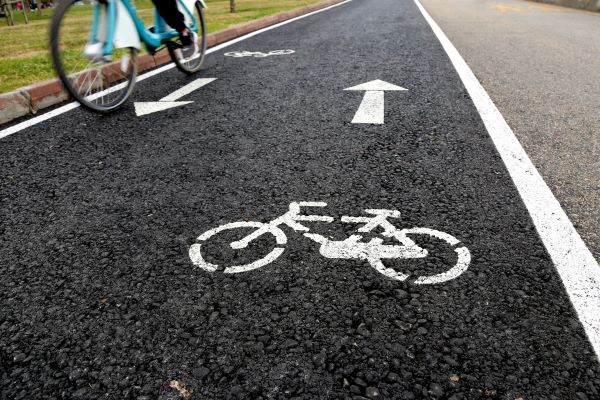Bicycling, or cycling, has been growing in popularity in recent years as an eco-friendly alternative mode of transport. With rapid urbanization in modern cities, cycling has emerged as a low-carbon mode of transportation, which is why it is encouraged by the UN Environment Programme. This article published in UCLA also states the benefits of riding a bicycle for the environment, such as cleaner air and less noise. But many choose to bicycle as a form of transport because of its health benefits.
If you’re living in North Carolina and want to enjoy the health and environmental benefits, you must be aware of the North Carolina bicycle laws. While it is a fun and healthy way to get around the city, it is also risky, especially in a highly urbanized environment. State laws, such as the North Carolina bicycle helmet law, ensure you can stay safe while riding your bike to work or for errands.
Introduction to North Carolina Bicycle Laws
North Carolina laws recognize bicycles as ‘vehicles,’ so bicyclists can enjoy the same rights as other motorists. But they also have the same responsibility of ensuring their own safety when operating their ‘vehicle’ for the safety of other road users.
Here is an overview of the state laws regarding bicycle use:
1. Ride on the right side of the road.
All cyclists must follow state law on the designated bicycle driving lanes. Like all other motor vehicles, it should be on the right side of traffic. The only exception to this law is when overtaking other vehicles, avoiding a road obstruction, or making a left-hand turn. Otherwise, you could be held liable, in case of an accident, if you are not in the correct lane.
In addition, all bicyclists are advised to stay off controlled access highways, such as interstates.

2. Equip your bikes with proper lighting equipment.
Since North Carolina laws recognize bikes as motor vehicles, they must have proper lighting equipment. A rear reflex mirror, a lighted lamp, and a rear lamp are necessary to ensure the visibility of bikes at night.
The bike lighting equipment should be visible in normal atmospheric conditions within a 300-feet range. Meanwhile, the red reflector on the back of the bike must be visible within 200 feet.
3. Impaired driving is illegal.
Like motor vehicle drivers, bicyclists must avoid impaired driving. You should not operate your bike on roadways when under the influence of an impairing substance like alcohol. Offending riders could face a DWI charge if they are apprehended and discovered to have alcohol in their system.
4. Obeying all traffic rules.
Since North Carolina laws consider bicycles as motor vehicles with access to roads, they are also subject to the same traffic rules. All bicycles must yield to pedestrians when passing through crosswalks or navigating sidewalks. Cyclists must ensure that pedestrians can pass safely before they proceed on their route.
Bicycle riders should obey all traffic signs and signals. For example, they must stop when the traffic light is red and wait for it to turn green before they proceed. Riders must also use correct signaling turns, whether mechanical or hand signals. They should be able to indicate to other drivers their intent to turn or stop. While using hand signals for bikers is legal, you must signal at least 100 feet before your intended action.
Moreover, cyclists must observe the designated speed limits for the road they pass.
5. Bicyclists are protected from passing vehicles.
North Carolina drivers must show consideration to bicycle riders. While overtaking them is allowed, you can only do this if your vehicle is two feet to the left of the bicycle. The North Carolina bicycle law prohibits overtaking a bicycle at crossings or intersections, at a curve in the road, on the crest of a hill, or on any road where the rider will experience low visibility in the next 500 feet.
6. Notifying authorities following a crash.
All bicycle riders must stop at the site of a crash, especially if there is an injury, property damage, or death. The rider must notify the authorities of the incident and wait for them to arrive Failure to remain at the accident scene or aiding those injured could result in criminal charges. The offending cyclist could also face hefty fines, especially if the damage caused is valued above $1,000.
North Carolina Bicycle Helmet Laws
According to the North Carolina Bicycle Helmet Laws, all cyclists must wear helmets. Minors riding a bicycle must also wear a helmet. If a bicyclist is under 16 and not wearing a helmet, the parent or guardian could face a fine of $10, especially if they knowingly allow their child to use a bicycle without a helmet.
Helmets serve as the first line of defense in road accidents and crashes. This study supports that wearing a helmet can significantly reduce the risk of head injury from a crash, when wearing a helmet, by up to 70%.
However, the North Carolina bicycle helmet law does not grant liability or negligence on the part of the rider in case of an accident, and they’re found to not be wearing a helmet. Also, wearing a helmet does not fully protect you from severe head injuries from a crash. You should speak to a North Carolina bicycle accident lawyer about your rights if you’re involved in a road crash as a bicyclist. They can educate you about your rights and the legal steps you can take against the culprit.

What If You’re the One Who is Injured?
If you’ve been involved in a road accident as the victim, you must contact your North Carolina bicycle accident lawyer immediately. No matter how careful and obedient you are to the law, serious accidents could still happen to you. Consulting an attorney will help protect your legal rights and ensure you can get support from the offending party as you recover from your injuries.
Since North Carolina has a contributory negligence rule, the victim must show proof they shared no fault in the accident. A lawyer can help you recover damages from the defendant during the incident.
With North Carolina envisioning itself to become a bike-friendly state, there is no denying there is still more to be done to protect bicyclists. But understanding the law is the first step in ensuring everyone, not just bicyclists, is safe on the road.

